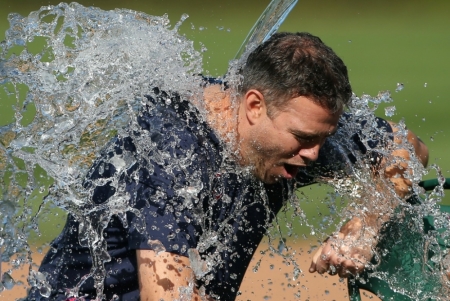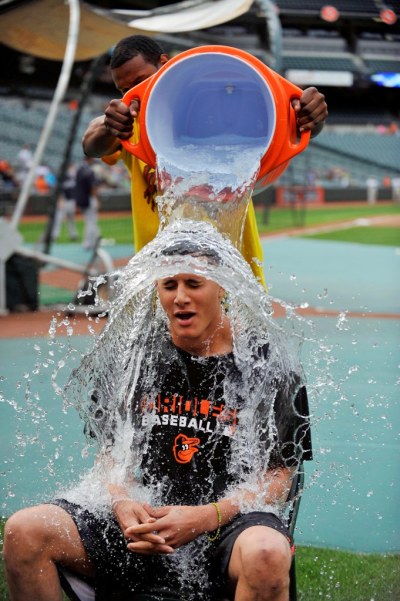Beware of 'Ice Bucket Challenge,' Says Catholic Leaders, Lila Rose; Here Is Why

Some pro-life leaders are declining to participate in the viral "ice bucket challenge" to raise money for the ALS Association's efforts to find a cure for Lou Gehrig's disease.
The ALS Association supports the destruction of human embryos for research, they say, and while finding a cure for a horrible disease is honorable, the ends do not justify the means.
"It is noble to combat a deadly disease, and the ice bucket challenge definitely puts a fun spin on philanthropic efforts. That's why it's such a shame that the ALS Association, while striving to save some people, chooses to support research that thrives from experimenting on and killing tiny, innocent human beings," Lila Rose, president of the pro-life advocacy group Live Action, said in a statement.

The ALS Association would be worthy of support, she continued, if they did not support the destruction of human embryos for scientific research.
"Embryonic stem cell research, which requires the destruction of pre-born people, is inherently unethical and a violation of fundamental human rights, and even materialists must admit that promises of its benefits have failed to deliver. There is no good reason to condone this practice; in fact, all it does is taint the ALS Association, whom I'd otherwise be happy to support," she said.
For the same reason, the Catholic Archdiocese of Cincinnati told the principles at its Catholic schools that their students should be discouraged from sending donations to the ALSA if they particpate in the "ice bucket challenge."
"We appreciate the compassion that has caused so many people to engage in this," Dan Andriacco, a spokesperson for the archdiocese, told Cincinnati Enquirer. "But it's a well established moral principle that a good end is not enough. The means to that ends must be morally licit."
Amyothrophic lateral sclerosis, also called Lou Gehrig's disease, is a nerve cell disease in the brain and spinal cord. Those with the disease lose control of voluntary muscle movement.
The "ice bucket challenge" was begun by friends and family of Pete Frates, a former star baseball player for Boston College who suffers from ALS. Those participating in the challenge videotape themselves getting ice water dumped on their head. The videos are posted to social networking sites and are accompanied with a donation pledge for the ALS Association. According to ESPN, in the first two weeks of the challenge, Jul. 29 through Aug. 14, the ALS Association had 146,000 new donors and raised $7.6 million.
Father Michael Duffy also brought attention to the issue of funding research on human embryos in an Aug. 14 Patheos blog post.
The ALS Association website has a page devoted to answering questions about stem cell research. The page notes that there are "ethical concerns" with conducting research on human embryos but does not condemn the practice.
The Duffy blog post contains a quote from that was on that ALSA website page encouraging embryonic stem cell research. The quote has since been removed from that page, but can still be found in an article on the ALSA website by Lucie Bruijn, Ph.D., ALSA's senior vice president of research and development.
"Adult stem cell research is important and should be done alongside embryonic stem cell research as both will provide valuable insights. Only through exploration of all types of stem cell research will scientists find the most efficient and effective ways to treat diseases," Bruijn wrote.
The American Life League maintains a page on its website detailing the positions of charities on life issues. On that page it notes a July 2, 2014, email from the ALSA acknowledging that the ALSA funds a study through a specific donor that uses embryonic stem cells.
After noting that donors may specify that their funds not be used for research using human embryos, the email states, "Under very strict guidelines, the association may fund embryonic stem cell research in the future."
As an alternative to the ALSA, Duffy suggests giving to The John Paul II Medical Research Institute.





















